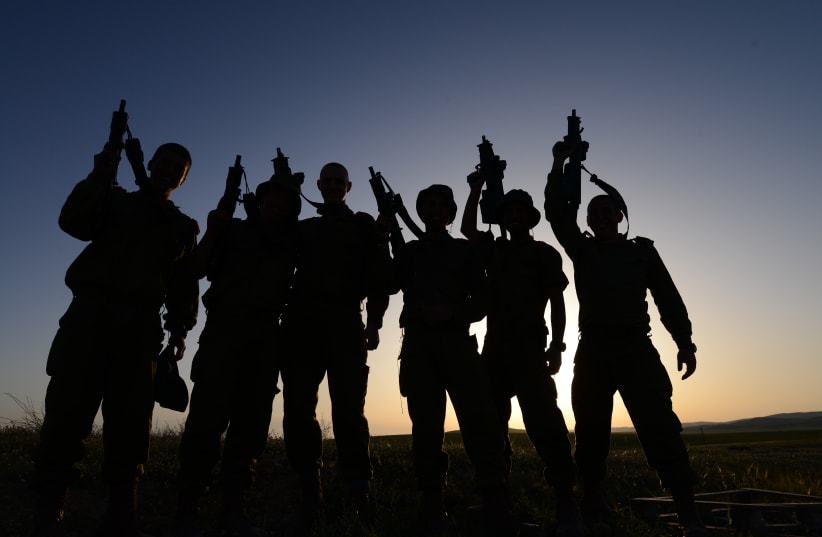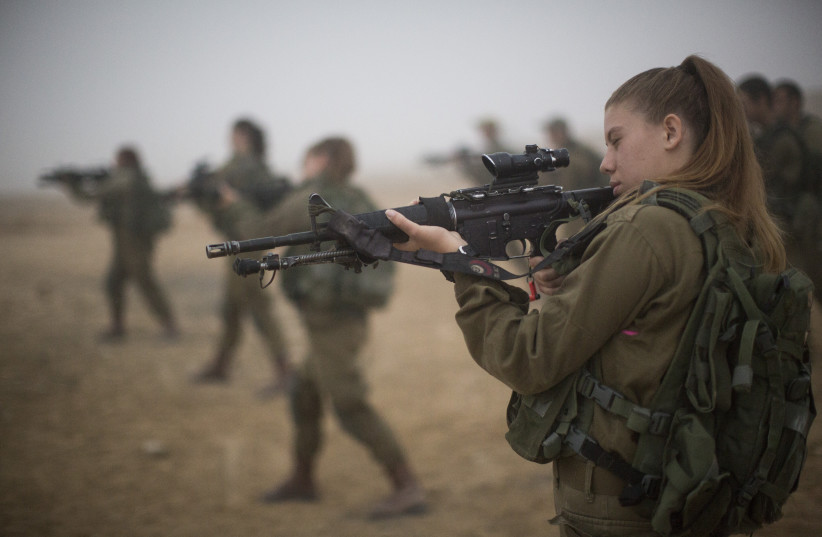Lawmakers want to postpone the shortening of military service by several years because the IDF is already facing a shortage of 6,000 troops in key positions such as combat and technological roles.
“The multi-year Momentum program and the change in threats have led to an increase in the scope of the IDF’s needs between 2020-2025, with an emphasis on the need to increase the number of service members in ground combat and technological roles,” read a statement released by the Foreign Affairs and Defense Committee.
According to the FADC, which met on Tuesday, the IDF is already facing a gap of 6,000 soldiers for the current needs “which are not expected to change until 2025,” and therefore requested postponing an additional shortening of service for troops.
Men served 36 months in the IDF for many years, but in 2015 their compulsory service was cut down to 32 months as part of the IDF’s multi-year Gideon plan. It was further cut to 30 months in July 2020.
The plan to shorten mandatory service would see basic and advanced training cut and would allow soldiers to begin their operational duty sooner.
Women serve a total of 24 months, except for those who volunteer to serve in positions where they serve the same amount of time as their male counterparts. Those women would also have their service shortened.
The bill tabled by the FADC seeks to postpone the date of the shortening of service to July 1, 2024, and to stipulate that troops who enlisted after July 1, 2020, will still serve 32 months and not 30 months.
FADC chairman MK Ram Ben Barak warned that the IDF “must not have a manpower gap in face of the challenges.”
IDF Chief of Staff Lt.-Gen. Aviv Kohavi is said to be opposed to the continued shortening of mandatory service, which can create serious personnel problems in the IDF and affect its fighting ability as the time devoted to training troops would also have to be shortened.
In July, former deputy chief of staff Maj.-Gen. Eyal Zamir warned that Israel’s military is not big enough and could find itself lacking in critical areas needed to defeat its enemies.
“In my opinion, the IDF is on the verge of the minimum size needed to face more complex threats than those we have experienced in recent years. Along with advanced technological capabilities, Israel also needs a critical mass of people to improve the IDF’s overall quality and quantity,” Zamir warned during a ceremony where Maj.-Gen. Herzi Halevi took over as deputy head.
“We could be facing a long, heavy, multi-theater campaign, combined with domestic challenges,” he said, adding that in order to overcome those threats Israel needs “decision-making abilities, breathing space and a strong reserve.”
Though it is mandatory for Jewish Israelis to draft into the IDF at the age of 18, in addition to the ultra-Orthodox who generally do not draft, there is a growing number who are choosing not to serve.
According to the military, only 69% of Jewish men were drafted into the IDF in 2019, and 56% of women. In comparison, 77% of men and 69% of women were drafted into the Israeli military in 2005.
Defense Minister Benny Gantz has been trying to reform the country’s conscription to the army, saying it is necessary in order to preserve the IDF as a “people’s army” in which every citizen, no matter the background, will serve the country. If not, the country would be forced to end the drafting of citizens, thereby turning the IDF into a professional, albeit volunteer army.
His universal national service model would replace the current system that exempts Arab Israelis and ultra-Orthodox Jews from serving in the military or civil service after finishing high school. The military would get the first choice of recruits followed by other security and civil service roles such as serving in the police or in hospitals.

